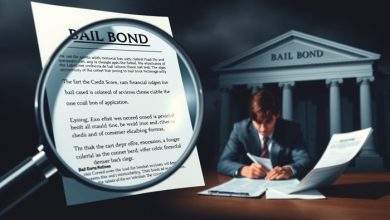
Ensuring the safety and well-being of infants is a paramount concern for every parent. Unfortunately, recent investigations have revealed that some baby food products contain harmful levels of heavy metals, posing potential risks to children’s health. If your child has been affected, understanding your legal rights is crucial. Here’s what you need to know about pursuing a BabyFood Lawsuit and seeking justice for your child’s injuries.
Understanding the Issue
In 2019, a study by Healthy Babies Bright Futures found that over 90% of baby food products tested contained toxic heavy metals such as lead, arsenic, cadmium, and mercury. These contaminants are known to pose serious health risks, including developmental delays, cognitive impairments, and behavioral issues. Despite these findings, some manufacturers continued to sell products without adequate warnings, leading to public outcry and subsequent legal actions.
Legal Grounds for a Lawsuit
Parents whose children have suffered health issues after consuming contaminated baby food may have grounds for a lawsuit. Legal claims typically fall under product liability, alleging that manufacturers were negligent in ensuring the safety of their products. To pursue a case, it’s essential to demonstrate:
- Consumption of Contaminated Products: Evidence that the child consumed baby food products containing harmful levels of heavy metals.
- Diagnosis of Health Issues: Medical documentation linking the child’s health issues, such as developmental delays or cognitive impairments, to the consumption of the contaminated products.
- Manufacturer’s Negligence: Proof that the manufacturer failed to adhere to safety standards or adequately warn consumers about potential risks.
Steps to Take if Your Child Has Been Affected
If you suspect that your child’s health issues are related to contaminated baby food, consider the following steps:
- Consult a Healthcare Professional: Seek medical attention for your child to assess and document any health concerns. Blood tests can detect elevated levels of heavy metals.
- Preserve Evidence: Retain packaging, receipts, and labels of the baby food products consumed. This documentation can serve as crucial evidence in your case.
- Consult a Personal Injury Lawyer: Reach out to a qualified personal injury lawyer experienced in handling product liability cases. They can provide guidance on the viability of your claim and the legal process involved.
Potential Compensation
If a lawsuit is successful, families may be entitled to compensation for:
- Medical Expenses: Costs related to the diagnosis and treatment of health issues caused by the contaminated products.
- Therapy and Special Education: Expenses for therapies and educational support services required due to developmental delays.
- Pain and Suffering: Compensation for emotional distress and diminished quality of life resulting from the child’s health issues.
- Punitive Damages: In cases of gross negligence, additional damages may be awarded to punish the manufacturer and deter future misconduct.
Statute of Limitations
It’s important to be aware of the statute of limitations, which sets a deadline for filing a lawsuit. In many jurisdictions, the clock starts ticking from the date the injury was discovered. Therefore, it’s advisable to consult with a lawyer promptly to ensure your claim is filed within the allowable time frame.
Conclusion
The safety of our children should never be compromised. If your child has been harmed due to contaminated baby food, pursuing legal action can help hold manufacturers accountable and secure the compensation needed for your child’s care. By taking informed steps and seeking professional legal assistance, you can navigate the complexities of a BabyFood Lawsuit and work towards justice for your family.




